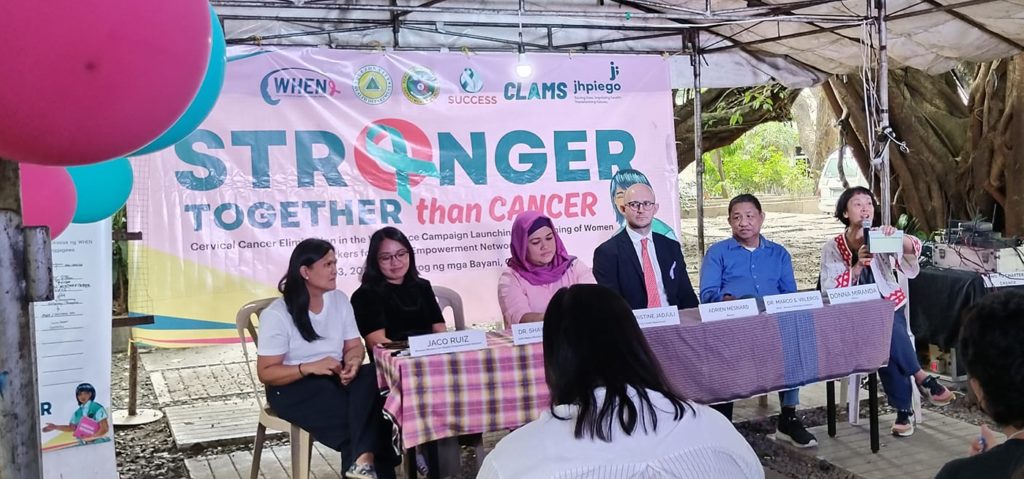The Ecumenical Institute for Labor Education and Research (EILER) lauds the women-led labor organizations behind the launching of the Cervical Cancer Elimination (CCE) in the Workplace Campaign on March 3.
The WHEN: Women Workers for Health Empowerment Network spearheaded the event held at the Bantayog ng mga Bayani in Quezon City. With the theme, “Stronger Together than Cancer,” the campaign aims to create awareness on cervical cancer at the communities and workplaces, to promote women’s health and the right to a safe and healthy working environment.
According to the World Health Organization (WHO), the highest rates of cervical cancer incidence and mortality are in low- and middle-income countries, particularly in sub-Saharan Africa (SSA), Central America and South-East Asia. This is driven by social and economic determinants and lack of access to screening and vaccines.
An HPV vaccine protects against certain cancers, including cervical cancer, caused by human papillomavirus (HPV) infection. The HPV vaccination rate among Filipino women remains to be unsatisfactory, according to a study by Filipino health professionals published in Frontiers in Medicine in 2022.[1] Additionally, the Department of Health has included the HPV vaccination in the community-based National Immunization Program only in 2015. The study also notes that the Philippines currently ranks last on HPV program coverage among low-middle income countries.

“Due to lack of decent jobs with living wages in the country, Filipina workers are more vulnerable and less likely to be adequately protected. Privation of public hospitals and health care facilities must be stopped. Instead, the government should prioritize public awareness, access to information and increasing public funding for government hospitals must be prioritized. A free, nationalized public health care system will reduce the disparities in burden of illness among workers,” Rochelle Porras, EILER Executive Director.
“The right to safe and healthy workplace is a fundamental right and is inseparable from the the right to organize, the freedom of association, the right to collective bargaining and to strike. At WHEN, we firmly believe that health rights are women’s rights,” Porras added.
EILER is part of WHEN and one of pool of volunteer health educators through its Gender and Labor program.
[1] Lintao RCV, Cando LFT, Perias GAS, Tantengco OAG, Tabios IKB, Velayo CL, de Paz-Silava SLM. Current Status of Human Papillomavirus Infection and Cervical Cancer in the Philippines. Front Med (Lausanne). 2022 Jun 20;9:929062. doi: 10.3389/fmed.2022.929062. PMID: 35795639; PMCID: PMC9251542.
